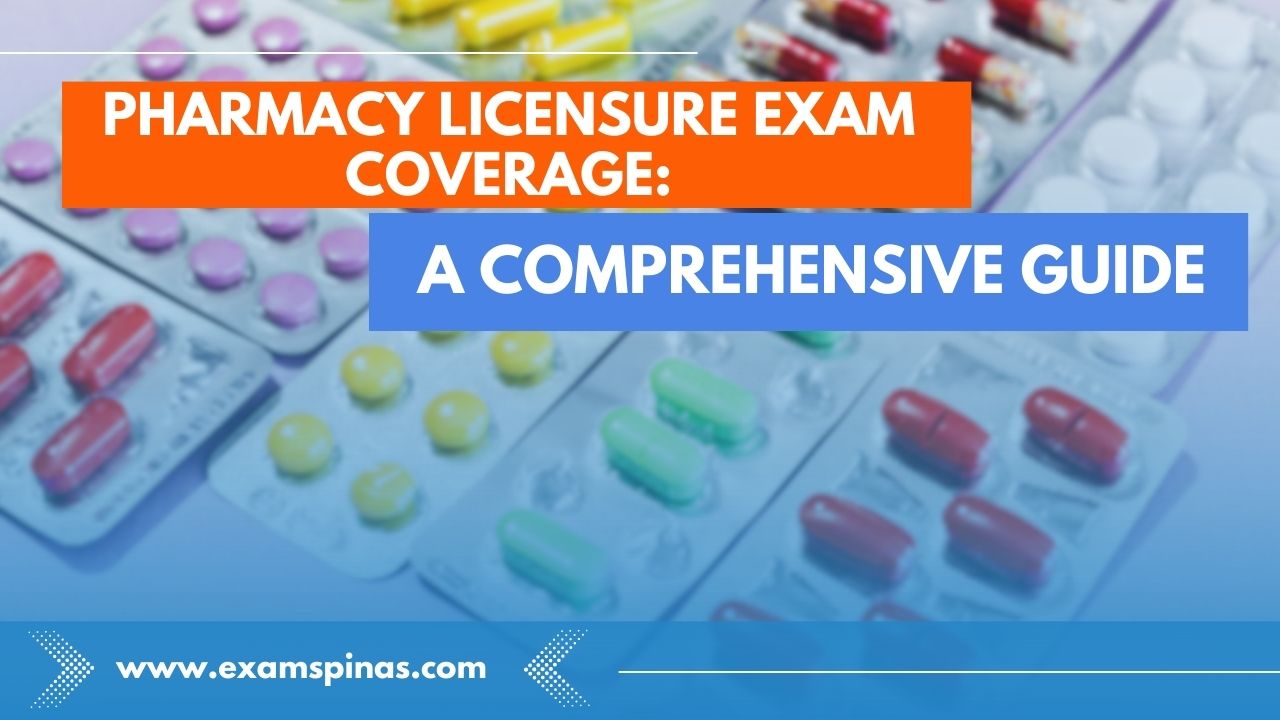The journey to becoming a licensed pharmacist in the Philippines is a rigorous yet rewarding process. Aspiring pharmacists must pass the Pharmacy Licensure Exam conducted by the Professional Regulation Commission (PRC). This comprehensive exam evaluates candidates’ knowledge and competency in various subjects related to the field of pharmacy. If you are preparing for this crucial exam, understanding its coverage is essential to ensure success.
The Pharmacy Licensure Exam Coverage The Pharmacy Licensure Exam consists of two parts, administered on two consecutive days. Each part assesses specific subjects to gauge candidates’ proficiency in essential areas of pharmacy practice. The exam coverage includes the following:
Day 1
- Pharmaceutical Chemistry: This subject tests candidates’ understanding of the chemical principles and properties of drugs and pharmaceutical products. It covers topics such as drug formulation, stability, and interactions.
- Pharmacognosy: Pharmacognosy focuses on the study of medicinal plants and natural sources of drugs. Candidates are expected to demonstrate knowledge of plant constituents and their medicinal properties.
- Pharmacology and Therapeutics: This section evaluates candidates’ comprehension of drug actions, mechanisms, and therapeutic uses. It covers various drug classes and their pharmacological effects.
- Pharmaceutics: Pharmaceutics delves into the science of dosage form design and drug delivery systems. Candidates are tested on their knowledge of pharmaceutical formulations and their preparation.
Day 2
- Pharmacy Practice: Pharmacy Practice assesses candidates’ expertise in various aspects of pharmacy services, including drug dispensing, patient counseling, and pharmaceutical care.
- Quality Assurance: Quality Assurance evaluates candidates’ grasp of pharmaceutical quality control and quality assurance procedures to ensure drug safety and efficacy.
- Pharmacokinetics and Biopharmaceutics: This subject examines the principles of drug absorption, distribution, metabolism, and elimination. Candidates are expected to understand drug behavior in the body.
- Clinical Pharmacy: Clinical Pharmacy focuses on the application of pharmaceutical knowledge in patient care settings. Candidates are tested on their ability to make sound clinical decisions and provide pharmaceutical interventions.
Preparing comprehensively for each subject within the Pharmacy Licensure Exam coverage is crucial for success. It requires dedication, perseverance, and a solid understanding of the principles and practices in the field of pharmacy.
Becoming a licensed pharmacist in the Philippines is a significant achievement that opens doors to a rewarding career in healthcare. As you prepare for the Pharmacy Licensure Exam, ensure that you cover all the subjects within the exam’s scope. A well-rounded understanding of pharmaceutical principles and practices will help you excel in the exam and embark on a fulfilling journey as a licensed pharmacist.

